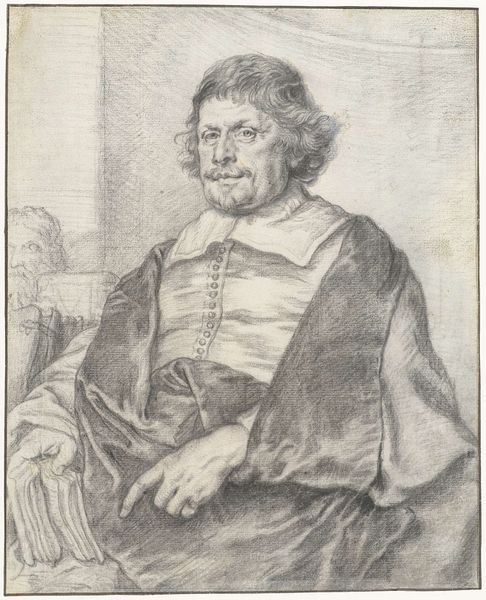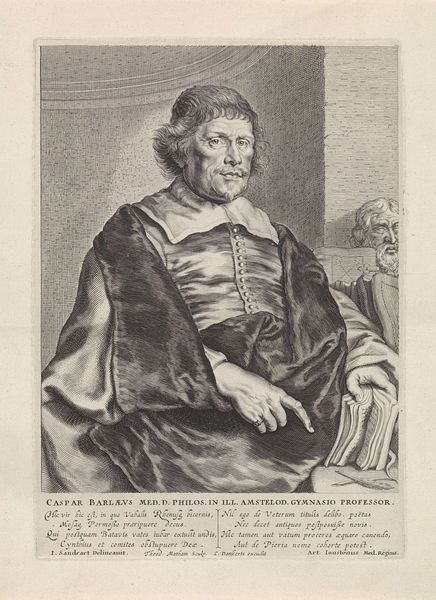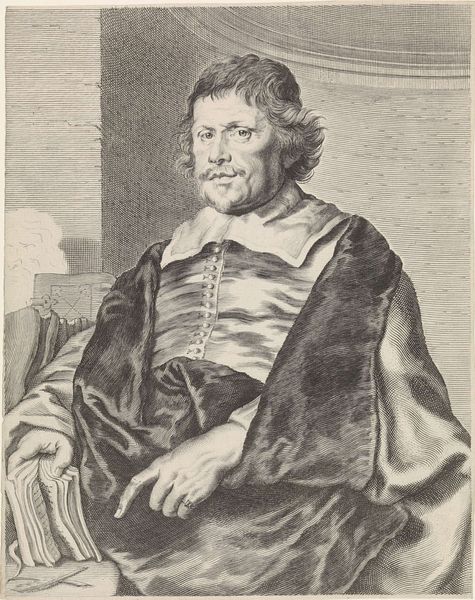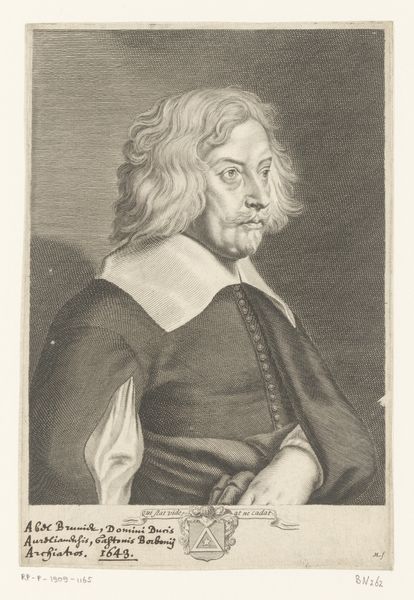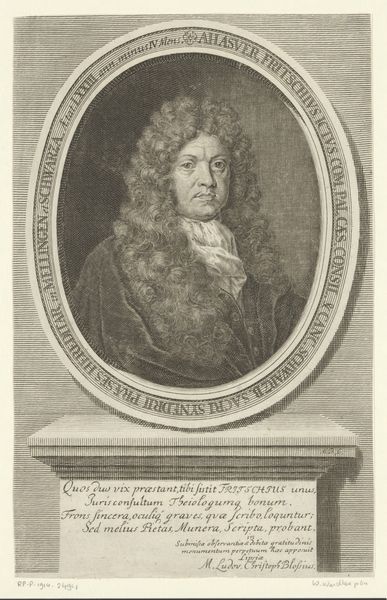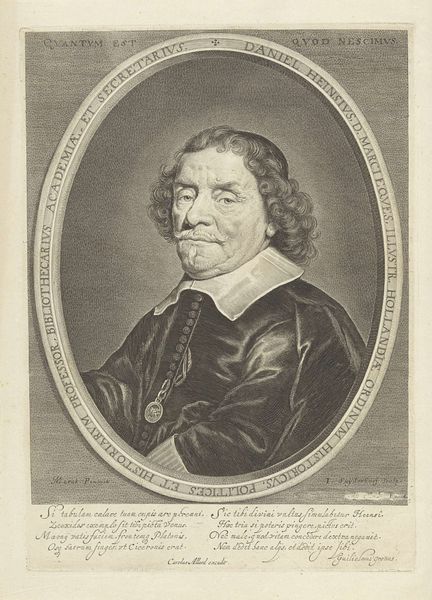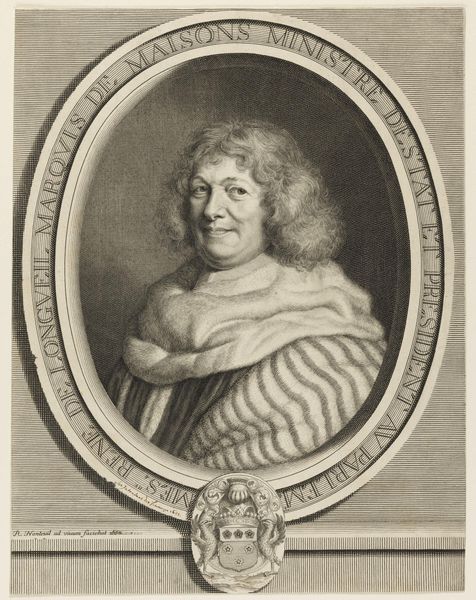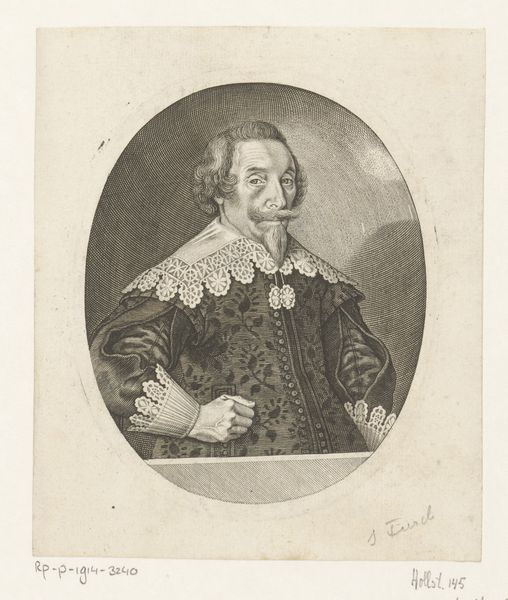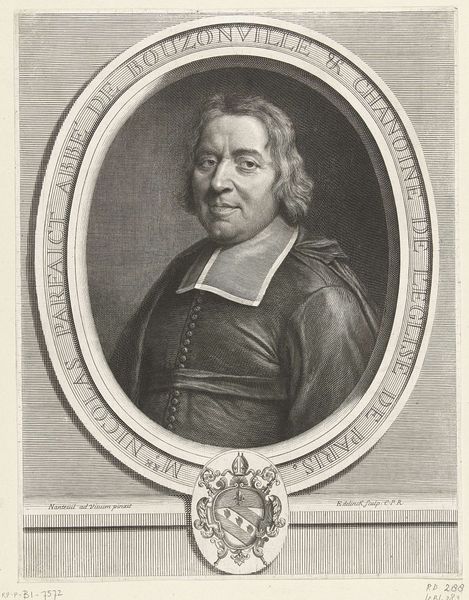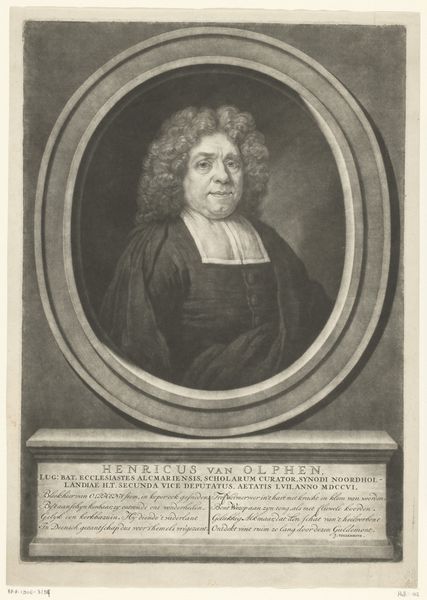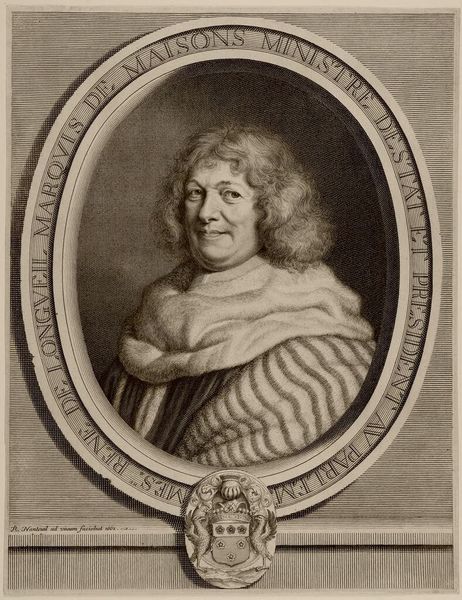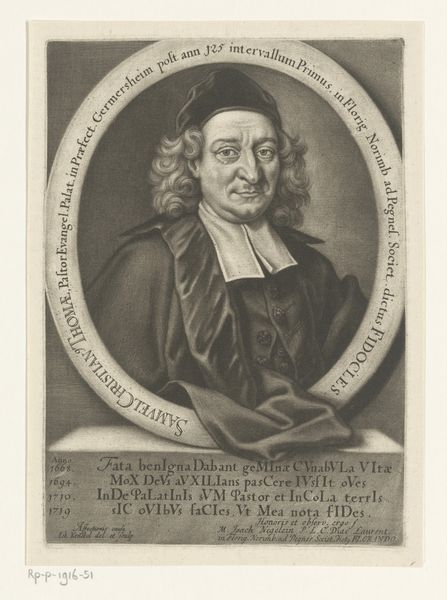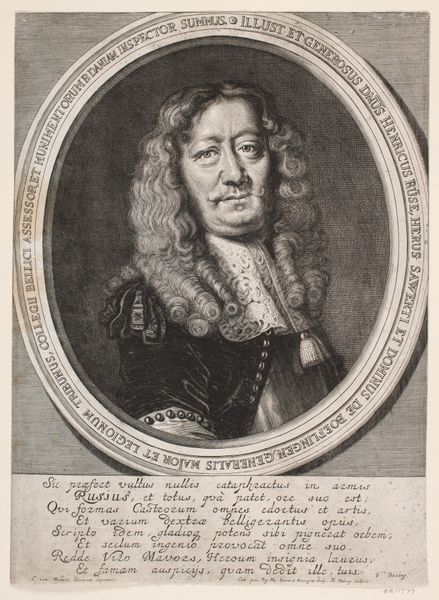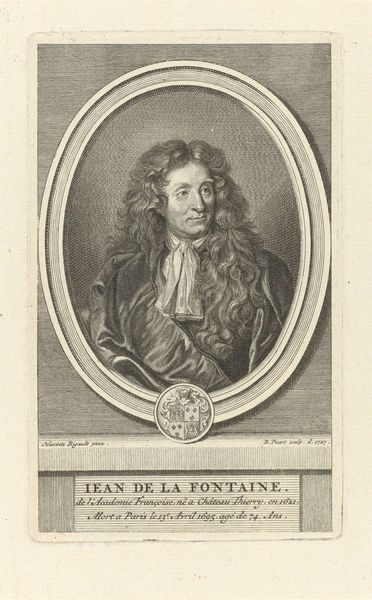
drawing, graphite, engraving
#
portrait
#
pencil drawn
#
drawing
#
dutch-golden-age
#
figuration
#
graphite
#
graphite
#
engraving
Dimensions: height 305 mm, height 245 mm
Copyright: Rijks Museum: Open Domain
Editor: This is "Portret van Casparus Barlaeus," an engraving and graphite drawing from somewhere between 1822 and 1845, currently residing at the Rijksmuseum. The limited use of color definitely emphasizes form, and I’m interested in the artist’s deliberate choice to focus on the lines. What do you see in this piece that stands out? Curator: The effectiveness of this portrait lies within its compositional structure. The artist utilizes hatching and cross-hatching to model Barlaeus's face and clothing, building depth and volume through a carefully orchestrated interplay of light and shadow. Editor: So, the value isn’t just for aesthetics; it has a structural purpose? Curator: Precisely. Consider how the white collar starkly contrasts against the darker coat, immediately drawing the viewer's eye to the face, the focal point of the composition. Note also how the artist skillfully uses varied line weights, from delicate, almost imperceptible strokes to bolder, more defined lines. Editor: Is that what gives the subject presence? Curator: Precisely. This meticulous modulation lends dynamism to the artwork. In other words, form emerges directly from these layered patterns of contrasting strokes. It isn't the cultural context, nor the historical meaning that grants value; it’s the visual experience itself. The way those elements build up a striking presence on the page. Editor: I’m starting to see how just looking at those intrinsic components offers a more in-depth experience. I’ll never look at hatching the same way again. Curator: Indeed, focusing on form and composition allows us to appreciate the artist’s technical skill.
Comments
No comments
Be the first to comment and join the conversation on the ultimate creative platform.
